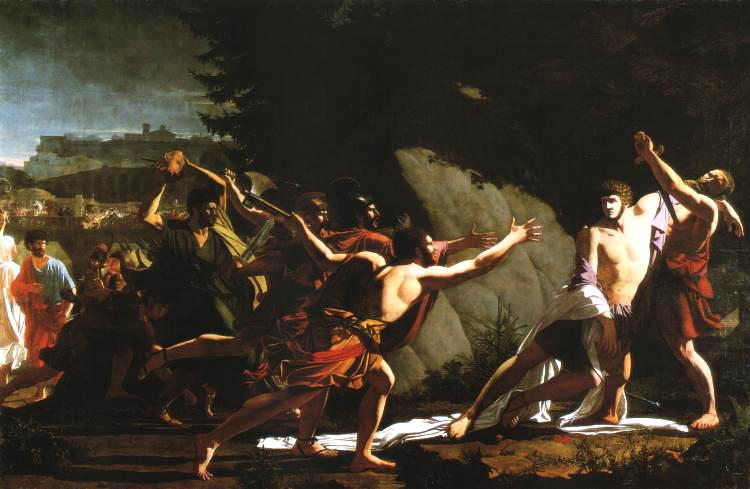|
Gaius Servilius Glaucia
Gaius Servilius Glaucia (died late 100 BC) was a Roman politician who served as praetor in 100 BC. He is most well known for being an illegal candidate for the consulship of 99 BC. He was killed during riots and political violence in the year 100 BC while pursuing consular candidacy. Career Glaucia was probably descended from consular ancestors, making him one of the ''nobiles''. His public career started with his holding the quaestorship some time before 109 BC. In the year 104 or 101 BC ( T. R. S. Broughton, in ''Magistrates of the Roman Republic'', expresses both years as possibilities but prefers 101 BC; Ernst Badian asserts 101 BC), Glaucia served as plebeian tribune. His tribunate, regardless, was held one year before that of Lucius Appuleius Saturninus, though the specifics cannot be easily pinned down due to a lack of clarity in Appian's account. During his tribunate, he passed legislation transferring the jury pool in the perma ... [...More Info...] [...Related Items...] OR: [Wikipedia] [Google] [Baidu] |
Roman Republic
The Roman Republic ( la, Res publica Romana ) was a form of government of Rome and the era of the classical Roman civilization when it was run through public representation of the Roman people. Beginning with the overthrow of the Roman Kingdom (traditionally dated to 509 BC) and ending in 27 BC with the establishment of the Roman Empire, Rome's control rapidly expanded during this period—from the city's immediate surroundings to hegemony over the entire Mediterranean world. Roman society under the Republic was primarily a cultural mix of Latin and Etruscan societies, as well as of Sabine, Oscan, and Greek cultural elements, which is especially visible in the Roman Pantheon. Its political organization developed, at around the same time as direct democracy in Ancient Greece, with collective and annual magistracies, overseen by a senate. The top magistrates were the two consuls, who had an extensive range of executive, legislative, judicial, military, and religious po ... [...More Info...] [...Related Items...] OR: [Wikipedia] [Google] [Baidu] |
Senatus Consultum Ultimum
The ''senatus consultum ultimum'' ("final decree of the Senate", often abbreviated to SCU) is the modern term given to resolutions of the Roman Senate lending its moral support for magistrates to use the full extent of their powers and ignore the laws to safeguard the state. The decree has been interpreted to mean something akin to martial law, a suspension of the constitution, or a state of emergency. However, it is generally accepted that the senate did not have power to make or provide exceptions to laws. No laws were actually suspended; the senate merely lent its moral authority to defend a magistrate's extra-legal acts. First used against Gaius Gracchus in 121 BC to suppress a violent protest against repeal of a colonisation law and accepted thereafter, recourse to the decree accelerated over the course of the last century of the republic. Its use was politically disputed, although usually in terms of whether a decree was justified by the challenges facing the state ra ... [...More Info...] [...Related Items...] OR: [Wikipedia] [Google] [Baidu] |
Populares
Optimates (; Latin for "best ones", ) and populares (; Latin for "supporters of the people", ) are labels applied to politicians, political groups, traditions, strategies, or ideologies in the late Roman Republic. There is "heated academic discussion" as to whether Romans would have recognised an ideological content or political split in the label. Among other things, ''optimates'' have been seen as supporters of the continued authority of the senate, politicians who operated mostly in the senate, or opponents of the ''populares''. The ''populares'' have also been seen as focusing on operating before the popular assemblies, generally in opposition to the senate, using "the populace, rather than the senate, as a means or advantage. References to optimates (also called ''boni'', "good men") and ''populares'' are found among the writings of Roman authors of the 1st century BC. The distinction between the terms is most clearly established in Cicero's ''Pro Sestio'', a speec ... [...More Info...] [...Related Items...] OR: [Wikipedia] [Google] [Baidu] |


